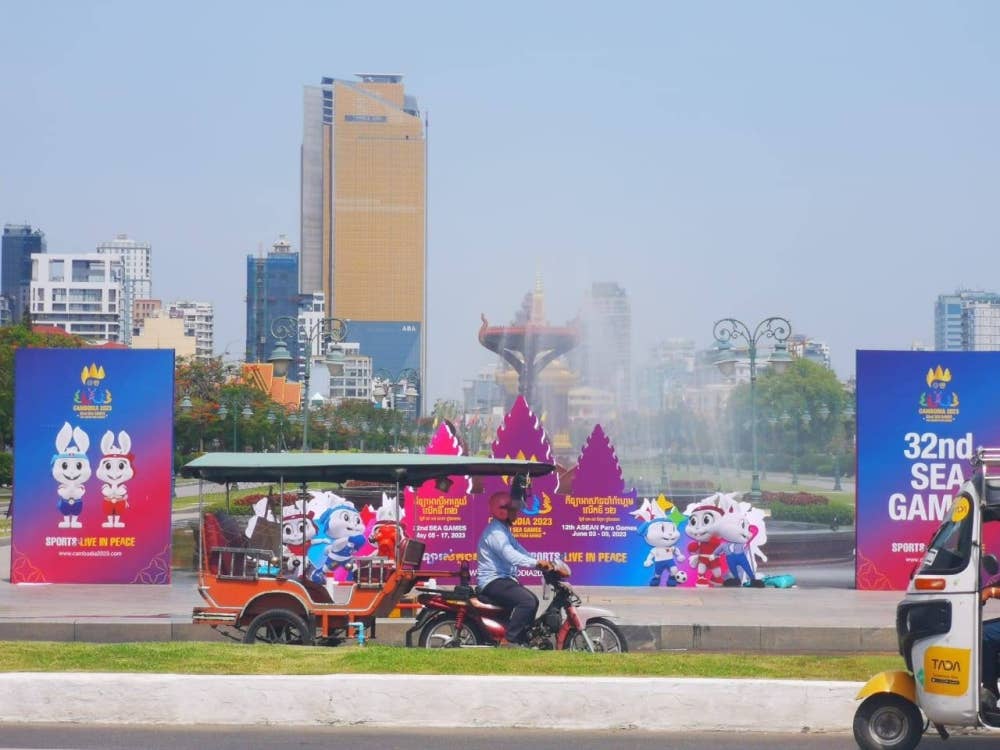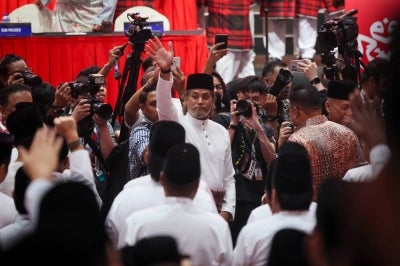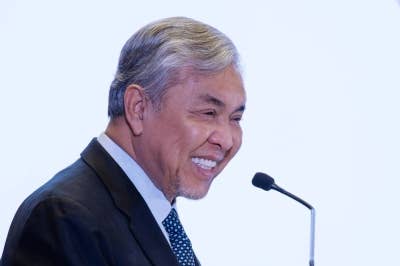Sea Games debacle: A Minister out of depth in a long failing system
Arnaz M. Khairul
It would have been an ideal setting for Sports Minister Hannah Yeoh to be in Phnom Penh to welcome Malaysia's 40th gold medal at the 32nd Sea Games with the customary selfie with the winner to fuel the adorement of her social media bandwagon.
But instead as the guardian of the malaise that grips Malaysian sport and reared its ugly head yet again, she was nowhere near it and now has nowhere to hide.
No excuse can hide the fact that it was a failure and while being that, one that is set to continue, as we have warned, barring a concerted effort to reform the long decayed system that has ruined Malaysian sports at its core.
Framing the 34 gold medal haul as one that was due to predominantly young athletes while the target of 40 gold medals was in fact a conservative and weak one, with the exact same excuse of a contingent dominated by young athletes, only gives us a false sense of comfort as if we had massive strengths in reserve which could have multiplied our gold medal haul.
The only sports contested at this Sea Games in which we truly had strength in reserve without the big names in participation were diving and field hockey, where the youngsters swept all six gold medals on offer anyway.
Badminton these days isn't assured of any gold medal in any event even with our strongest squad, but our youngsters there were also up against third and fourth string Indonesians and Thais.
There is simply no answer to the decline in swimming with senior Khiew Hoe Yan again delivering the solitary gold medal, while in athletic which delivered five gold, three silver and 11 bronze medal, the only absentee that was arguably a medal contender was US-based sprinter Azeem Fahmi.
Beyond that, the cricket squad may argue that they fell foul of a surprise sprung by a Cambodian squad made up of Indian and Pakistani imports, which otherwise could have seen three more gold medals on the tally.
Yet these were all arguments that simply sway us away from the fact that even with a 40 gold medal target achieved, we would have ranked no better than the seventh spot overall.
A spot only justified by the state of decay Malaysian sport has slumped into, with the Minister's press conference offering no way out but the promise of further funding into a system that is the core of the rot.
Again, we need to revisit this system of state-funded programmes, rebranded and given a new name by every Minister since its inception as the Jaya 98 programme in 1994, which has robbed Malaysian sports of its industry, dynamism and growth for 29 years and will continue, given the promises made by the latest Minister.
After almost three decades, no sport is free of the grip of politicians, none is truly backed by its own industry and each failure can only result in the promise of more funds into a long-failed system.
For over RM100 billion spent on these government-dominated programmes, Road to Gold (RTG) in its latest incarnation, since 1994 our results at the last Olympics were a silver and a bronze medal, which was no better than our haul in the 1996 Olympics in Atlanta.
To further cement this fact, our Sea Games haul of 34 gold, 45 silver and 96 bronze medals this time out is worse than our worst ever outing in the regional Games of 36 gold, 38 silver and 65 bronze medals in Manila in 1991.
All these while each mammoth grant and annual budget funneled from the nation's coffers annually for the past 29 years came with the intention of turning Malaysia into a regional powerhouse in sports, which by should be challenging Vietnam and Thailand atop the Sea Games medal haul, not merely sitting seventh ahead of Timor-Leste, Brunei and Laos, and only ahead of Myanmar by 13 gold medals.
We should realise by now that the system in place, one initially adopted from Eastern bloc communist nations during the Cold War which supresses industry and commercialisation, is a failed one and Malaysia has nothing to lose by constructing reforms to release sports from the grip and limits of government funding.
It is a difficult hole to get out of, particularly because of a generation of leaders, particularly those helming the vast majority of national sports associations (NSAs) who have grown accustomed to the comfort zone and slumber offered by the ease of working within the limits of funds made available by the government.
A system that has led to more sports careers being short-lived than prolonged as athletes in most sports are left targeting limited slots under national programmes to sustain careers rather than industry-back eco-systems which sustain the growth and development of sports overall as is the case in all developed sporting nations.
Thus, the very mention of long-term programmes under the current system often raises more doubt than confidence as sports are inadvertently and unfairly left at the mercy of shifts and outcomes in the political sphere, with the current Minister even conveniently blaming political instability as among the reasons for the failure in Cambodia.
Asking this generation of sports officials to now slog to develop industries which would ultimately empower their own sports by making them self-sufficient, which ultimately would also deem government agencies less relevant to growth and progress, already raises severe resistance.
Yet ultimately, the solutions are in the hands of the NSAs as the rightful guardians of their sports to draw out a future that is fuelled by growth not bound by the limits of government programmes and funding, of which evidence spans the globe in every nation where sports pages are dominated by sports people (i.e., athletes and coaches) not sports ministers, administrators, and officials.
While Malaysia continues to be stuck in this rot, in Thailand, Vietnam, Indonesia and the Philippines more and more self-sufficient sports industries are already beginning to power their future in sports with more professional leagues and eco-systems in various sports, all showcasing their products at the Sea Games.
Malaysia is left with an out-of-depth Sports Minister needing to provide answers to this massive embarrassment, with only the government's coffers again at her disposal, along with the same structure of people responsible for this Cambodia haul and those before it to exhaust it all on again.
Only worse can yet be expected, as this vicious cycle can only continue if the government perseveres with not reforms it has long sloganised but succumb to the comfortable lure of sustaining the status quo.
The writer is a veteran sports writer and critic, a former Sinar Daily assistant news editor, former South East Asia representative of the International Association of Cycling Journalists (AIJC) and covered the Sea Games in Cambodia as a representative of the Olympic Channel.
The views expressed in this article are the author's own and do not necessarily reflect those of Sinar Daily.
Download Sinar Daily application.Click Here!














